How Building with Nature Helps Protect Coastal Ecosystem and Boost Local Economy
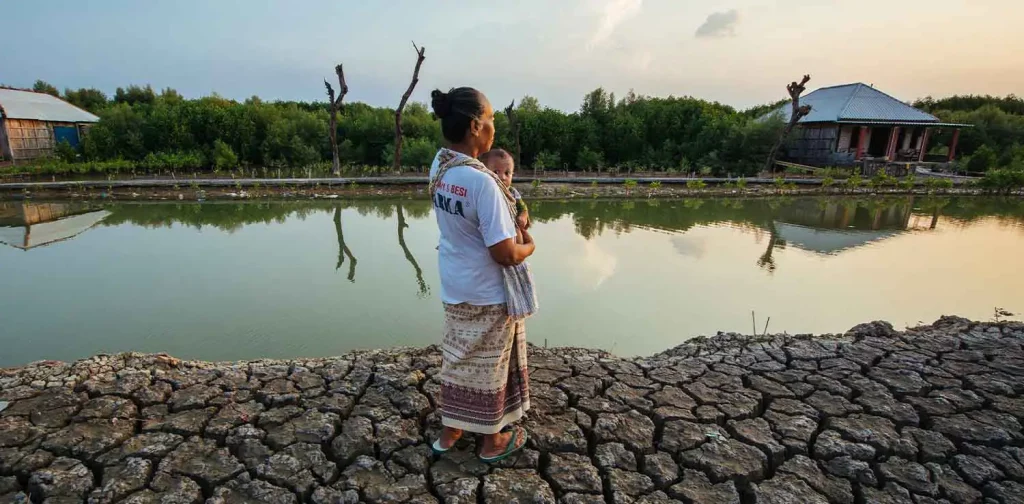
Villagers from Bedono, Demak, Indonesia. | Photo: Boskalis - Building with Nature Indonesia.
Coastal areas worldwide suffer greatly as climate changes, sea levels rise, and lands ‘sink’. Animals, plants, lands, and people in coastal communities are all affected, and proper measures must be taken to halt these progressions. In Indonesia, Building with Nature developed a way to restore mangrove forests in Demak to protect the coastal ecosystem while helping boost the local economy.
Halting Business as Usual
Besides climate change, human behaviors also lead to coastal floods and erosions. The removal of mangrove belts for aquaculture development, the construction of coastal infrastructure, and groundwater extraction are among the leading causes. Should business as usual continue, by 2030, 70,000 people will be affected due to floods and the loss of 6,000 hectares of aquaculture ponds in Demak, a coastal regency in Indonesia.
Building with Nature Indonesia is a multi-stakeholder program by Ecoshape, Wetlands International, the Ministry of Marine Affairs and Fisheries (MMAF), and other partners. It aims to help local communities build a stable and adaptable restored mangrove coastline that enables inclusive local economic growth. As the name implies, this program triggers a paradigm shift towards a development that considers both nature and people.
Holistic Solutions for the Coastal Ecosystem
Did you know that planted mangroves only have a 15-20% survival rate? Unless the right species are planted at the right location, they would only impair natural mangrove formation. Did you also know that dams and sea walls, as a single solution, are ineffective, expensive, and unstable for muddy coasts?
Building with Nature’s model combines green (nature-based) solutions with gray (hard-engineering) techniques and multifunctional land use. For the 20 km Demak coastline, it meant creating semi-permeable barriers to help restore mangroves, introducing sustainable aquaculture techniques to local communities, and studying possible integrated water management plans.
The semi-permeable barriers are made of poles and brushwood. They dampen the waves and trap sediments, allowing the shore bed levels to rise and mangroves to regenerate naturally with a 70% survival rate. The ownership and maintenance of the barriers have been transferred to the local communities.
To make space for mangrove belts, villagers needed to reduce or give up their fish and shrimp pond areas with assistance in developing new socio-economic activities given if asked for. The farmers then received Coastal Field Schools (CFS) training for sustainable aquaculture techniques. As a result, 277 farmers in Demak own shrimp-rearing ponds that can coexist with mangroves and yield double the shrimp.
Replication and Scale
The implementation of this model in Demak was deemed successful. Pieter van Eijk of Wetlands International says that the success will lead to Building with Nature projects in other parts of Asia. UNEP Executive Director Inger Andersen said, “It’s a model worth replicating for how countries can use nature to both ward off the severe impacts of climate change while simultaneously creating new economic opportunities for people.”

Co-create positive impact for people and the planet.
Amidst today’s increasingly complex global challenges, equipping yourself, team, and communities with interdisciplinary and cross-sectoral insights on sustainability-related issues and sustainable development is no longer optional — it is a strategic necessity to stay ahead and stay relevant.

Nazalea Kusuma
Naz is the Manager of International Digital Publications at Green Network Asia. She is an experienced and passionate writer, editor, proofreader, translator, and creative designer with over a decade of portfolio. Her history of living in multiple areas across Southeast Asia and studying Urban and Regional Planning exposed her to diverse peoples and cultures, enriching her perspectives and sharpening her intersectionality mindset in her storytelling and advocacy on sustainability-related issues and sustainable development.


 The Hidden Threat of Tire Pollution to Salmon Populations
The Hidden Threat of Tire Pollution to Salmon Populations 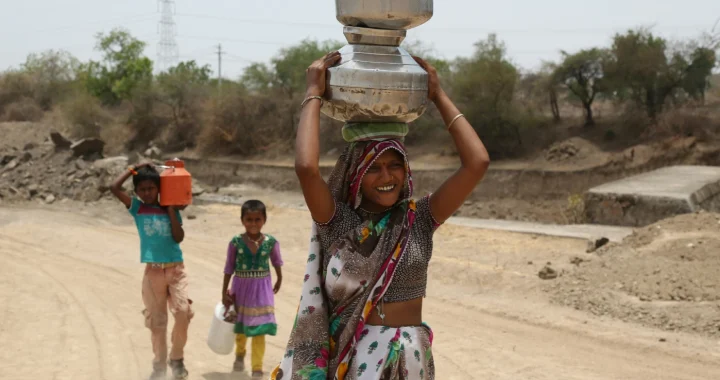 Understanding the Climate-Care Nexus
Understanding the Climate-Care Nexus 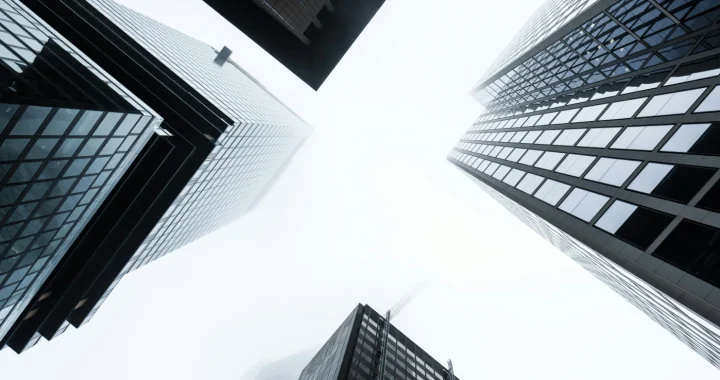 Role of Banks in Supporting Decent Work for All
Role of Banks in Supporting Decent Work for All 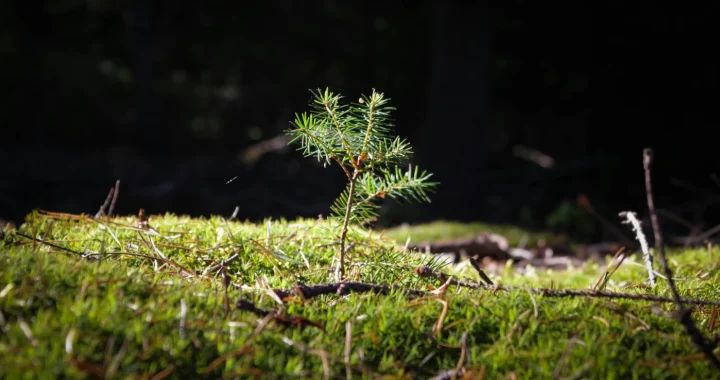 Natural Regeneration for a More Cost-Effective Forest Restoration
Natural Regeneration for a More Cost-Effective Forest Restoration 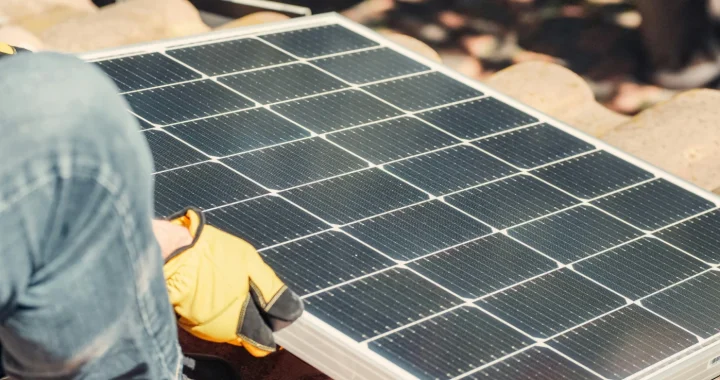 UK’s Local Power Plan to Support Community Energy Development
UK’s Local Power Plan to Support Community Energy Development 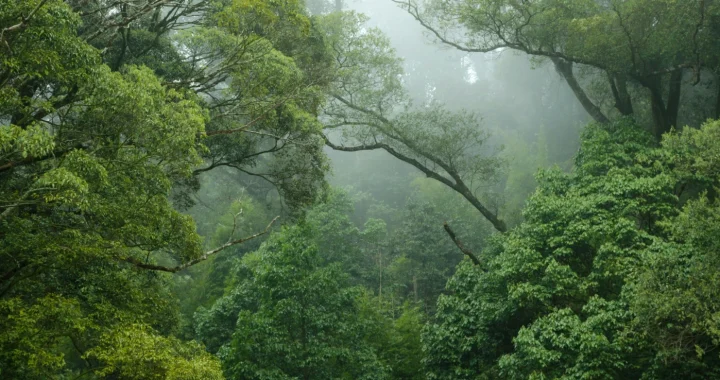 Global Shifts in Forest Dynamics and Their Impact on Biodiversity and Resilience
Global Shifts in Forest Dynamics and Their Impact on Biodiversity and Resilience